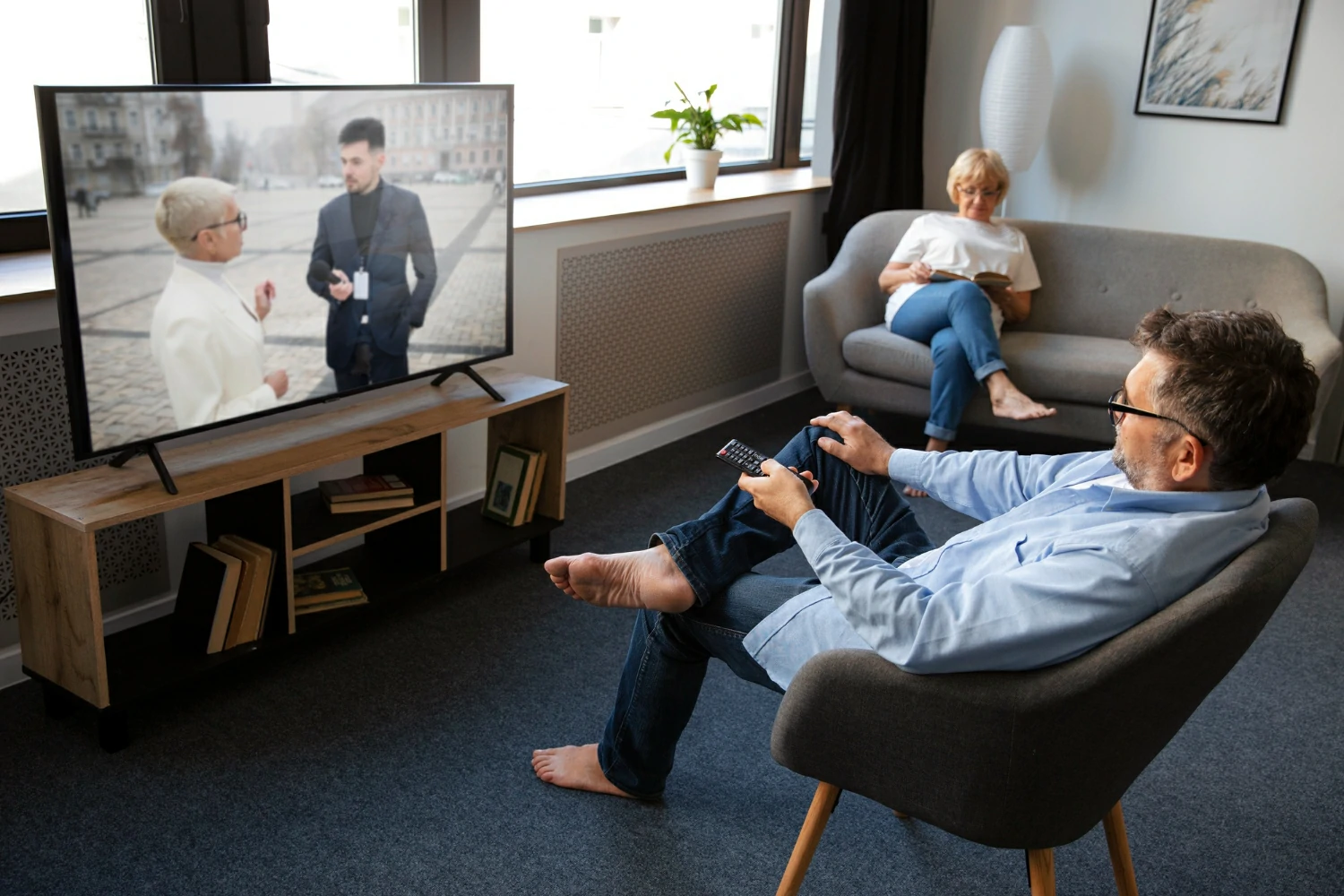How many people can stay in a hotel room? Answer is – The maximum number of people allowed in a hotel room depends on several factors. These include hotel policy, room type, location, and fire safety regulations. Typically, standard rooms accommodate at most 4 guests, but some hotels have stricter limits. Larger suites or family rooms may allow more guests, sometimes with additional fees per person. It’s always best to check directly with the hotel when booking.
Summary
- Hotel room occupancy limits vary based on fire codes and hotel policies.
- Standard rooms typically accommodate up to 4 guests.
- Larger suites or family rooms may be available for bigger groups.
- Some hotels charge extra fees for additional guests beyond two people.
- Always verify the occupancy limit with the hotel before booking.
How many people can stay in a hotel room?

What is hotel room occupancy?
Hotel room occupancy refers to the maximum number of guests permitted to stay in a single hotel room at a given time.
This number is crucial for hotels for several reasons, including ensuring guest safety, adhering to regulations, and optimizing their space and resources.
Why do hotels have occupancy limits?
There are two primary reasons why hotels enforce occupancy limits:
Safety: Primarily, occupancy limits are dictated by local fire codes and safety regulations. These codes are designed to ensure that in the event of an emergency, everyone in the hotel can evacuate quickly and safely. Overcrowding a room can hinder evacuation routes, create blockages, and increase the risk of injury or worse.
Sarah Peterson Expert Opinion
“Fire safety is the non-negotiable factor in determining hotel room occupancy,” states Sarah Peterson, a fire safety inspector with over 15 years of experience. “Local codes take into account room size, exit routes, and building materials to calculate safe occupancy levels.”
Hotel Policies and Resource Management: Beyond safety, hotels set their own occupancy limits to manage resources effectively. More guests mean increased wear and tear on the room, higher housekeeping costs, and greater demand on amenities. Hotels may adjust occupancy limits based on room type to balance profitability with guest comfort.
Mark Thompson Expert Opinion
“Occupancy limits help us maintain the quality of our rooms and services,” explains Mark Thompson, general manager of a popular city-center hotel. “We want to ensure every guest has a comfortable experience, and responsible occupancy guidelines play a big part in making that happen.”
Factors Affecting Hotel Room Occupancy

When planning your hotel stay, it’s essential to understand the various factors that determine how many guests can comfortably (and legally) occupy a single room. These factors include:
1. Hotel Policy
Standard room limits: Most hotels have a base occupancy limit for their standard rooms, typically accommodating two people comfortably. This standard is often based on the number of beds in the room (e.g., a room with two queen beds might have a four-person occupancy limit).
Additional fees for extra guests: Many hotels charge additional fees for each guest beyond the first two occupants. These fees help offset the increased costs associated with more guests, such as housekeeping, linens, and amenities. Be sure to inquire about extra guest fees when booking, so you’re not surprised by hidden charges.
Jessica Miller Expert Opinion
“Additional guest fees are not simply a way to make more money,” explains Jessica Miller, a hotel revenue manager. “These fees help us cover the real costs associated with accommodating more people in a single room.”
2. Room Type
Standard rooms: As mentioned, standard rooms generally have the most restrictive occupancy limits. These rooms are designed for comfort with a limited number of guests.
Suites: Suites offer more space and often feature additional sleeping areas, such as a pull-out sofa bed. They typically have higher occupancy limits than standard rooms, accommodating families or small groups.
Family rooms: Some hotels offer designated family rooms, which may include bunk beds, multiple bedrooms, or even kitchenettes. These rooms are specifically designed to cater to larger groups and have the flexibility in their occupancy limits.
Connecting rooms: Connecting rooms offer a solution for groups who need more space but prefer some privacy. These are two separate hotel rooms with an internal connecting door. Booking connecting rooms can significantly increase your group’s available space while adhering to occupancy limits.
3. Location
Fire safety regulations in different cities or countries: The most critical factor in determining occupancy is local fire safety regulations. These codes vary across cities, states, and countries. Fire codes take into account factors like the size of the room, the number of exits, and the building’s construction to determine the maximum safe occupancy. Hotels must strictly adhere to these regulations to ensure the safety of their guests.
Captain Robert Davies Expert Opinion
“While occupancy limits might seem inconvenient at times, they are absolutely essential for ensuring everyone’s safety,” emphasizes Captain Robert Davies, a firefighter with 20 years of experience. “Fire codes are based on thorough analysis and exist to protect lives.”
How to Find Out a Hotel’s Occupancy Limits

Knowing a hotel’s room occupancy limits in advance is crucial to avoid any surprises or complications during your stay. Here are the most reliable ways to find this information:
1. Checking the hotel website
Booking Pages: Most hotel websites list the maximum occupancy for each room type directly on the room description or booking page. Look for this information along with other room details like bed types, square footage, and amenities.
Policies or FAQ Section: Some hotels may have a dedicated “Hotel Policies” or “Frequently Asked Questions (FAQ)” section on their website. Check these areas for details on occupancy limits, extra guest fees, or other related policies.
2. Calling the hotel directly
If you can’t find the occupancy information on the website or want to clarify anything, the most direct approach is to call the hotel.
Benefits of Calling: Speaking to a hotel representative allows you to ask specific questions related to your travel group’s size and needs. They can also advise on the most suitable room types and any potential additional fees.
3. Reading online reviews
While not always the most reliable source, online reviews on platforms like TripAdvisor or Google Reviews can sometimes provide insights into a hotel’s occupancy policies.
What to Look For: Search for reviews where guests mention traveling in groups or with families. Sometimes, reviewers may comment on whether they comfortably fit their party in a room or if they were informed about occupancy limits during their stay.
Sarah Evans Expert Opinion
“While every hotel should clearly communicate their occupancy limits, it’s always a smart move for travelers to do their own research,” advises Sarah Evans, a seasoned travel blogger. “Taking a few minutes to check directly with the hotel ensures you have all the information you need for a smooth and enjoyable stay.”
What Happens if You Exceed Occupancy Limits

While it may be tempting to squeeze a few extra people into a hotel room to save money or keep your group together, exceeding occupancy limits can have serious consequences. Here’s what you need to know:
1. Safety Hazards
Evacuation Difficulties: In the event of a fire or other emergency, exceeding the room’s occupancy limit can severely impede safe and swift evacuation. Overcrowding leads to blocked pathways, confusion, and increases the risk of people getting left behind or injured.
Increased Fire Risk: More people in a room often means more electrical devices, luggage, and potential flammable materials. This increases the fire hazard potential, especially in older buildings or rooms not equipped with modern fire suppression systems.
Sarah Peterson Expert Opinion
“Every person over the occupancy limit exponentially increases the danger in an emergency situation,” emphasizes Lieutenant Sarah Peterson, a fire safety officer. “It’s not just about comfort; it’s about potentially life-or-death situations.”
2. Potential Eviction
Hotel’s Right to Refuse Service: Hotels have the right to refuse service or evict guests who violate their occupancy policies. If discovered, you may be asked to leave the hotel, even in the middle of the night, regardless of whether you’ve already paid for your stay.
Reputation and Liability: Hotels have a legal obligation to uphold fire codes and ensure their guests’ safety. Exceeding occupancy limits puts the hotel at risk of fines, penalties, and even damage to their reputation in the event of an incident.
3. Extra Fees or Charges
Unexpected Costs: Even if you’re not evicted, most hotels will charge you extra fees per person for exceeding their standard occupancy limits. These fees can add up quickly, negating any potential savings from trying to cram more people into a room.
Potential Fines: In some jurisdictions, exceeding fire code occupancy limits can result in fines being levied against both the guest and the hotel.
Mark Wilson Expert Opinion
“Exceeding occupancy limits is a gamble – you might get away with it, or you might end up paying more, facing eviction, or worse,” advises Mark Wilson, a hotel management consultant. “It’s never worth the risk.”
Tips for Groups and Families

Booking hotel rooms for a group or a family can pose some challenges, especially when it comes to occupancy limits. Here are strategies for maximizing space and ensuring a comfortable stay for everyone:
1. Book Early
Especially during peak travel seasons or popular events, desirable rooms book up quickly. Booking your stay well in advance is crucial for groups and families, as it gives you the best chance of securing the following:
Suites and Family Rooms: These room types are often in high demand and have higher occupancy limits. Early booking increases your chances of snagging them before they’re gone.
Connecting Rooms: If suites aren’t available, reserving connecting rooms as early as possible offers more flexibility for your group.
2. Consider Suites or Connecting Rooms
Suites: Suites provide more space, often with separate living areas, kitchenettes, and additional sleeping arrangements. They are ideal for families or groups who want more privacy and room to spread out.
Connecting Rooms: Booking two or more adjoining rooms with a connecting door provides a balance of shared space and separate sleeping quarters. This is a great option for families with older children or groups who want some individual privacy.
3. Contact the Hotel in Advance
Don’t hesitate to contact the hotel directly to discuss your group’s specific needs. Hotel staff can help you:
Understand Occupancy Rules: Get clarification on their policies, occupancy limits per room type, and any additional fees they charge for extra guests.
Find the Best Fit: Hotel staff may suggest room configurations or combinations that you hadn’t considered, ensuring everyone in your group has a comfortable place to sleep.
Potentially Negotiate: For larger groups or extended stays, you may be able to negotiate rates or secure special arrangements by speaking directly with the hotel.
4. Look for Family-Friendly Hotels
Many hotels cater specifically to families, offering amenities and services that make traveling with children easier. Look for hotels that feature:
Kids’ Clubs or Activities: Supervised programs or play areas give parents some downtime while keeping children entertained.
On-site Restaurants with Kids’ Menus: This offers convenient dining options without having to leave the hotel.
Family-Sized Pools or Recreational Facilities: These provide fun for all ages and help burn off excess energy.
Emily Thompson Expert Opinion
“Family-friendly hotels understand the unique needs of traveling with kids,” says Emily Thompson, a travel blogger specializing in family vacations. “They go the extra mile to provide amenities and a welcoming atmosphere, making the whole trip less stressful for both parents and children.”
Conclusion
Understanding hotel room occupancy limits is essential for a safe, comfortable, and hassle-free stay. While these limits might sometimes seem like an inconvenience, they exist primarily to protect guests and ensure a positive experience for everyone at the hotel.
Here’s a recap of the key takeaways:
- Hotel room occupancy is determined by fire safety regulations, hotel policies, and room types.
- Always verify occupancy limits with the hotel directly when making your booking.
- Exceeding occupancy limits can result in safety hazards, potential eviction, and additional fees.
- Planning ahead, choosing family-friendly options, and considering suites or connecting rooms are the best strategies for groups and families.
By being a responsible traveler and respecting occupancy rules, you not only enhance your own stay but also contribute to maintaining a safe and enjoyable environment for all hotel guests and staff.
FAQs
Q: Can I occasionally have an extra guest stay in my room without the hotel knowing?
While you might be able to get away with it temporarily, it’s never a good idea. Hotels have various ways to monitor occupancy, from housekeeping staff to security cameras. The risks of getting caught far outweigh any potential minor savings.
Q: Are occupancy limits strictly enforced for children?
Yes, fire safety regulations don’t differentiate based on age. Each person, regardless of size or age, counts towards the room’s occupancy limit. However, some hotels may be more flexible with infants who can safely sleep in a crib or pack-and-play provided by the hotel or brought from home. Always check directly with the hotel for their specific policies on children.
Q: What if I can’t find any hotels with suitable occupancy for my group?
Consider these alternatives:
- Vacation rentals: These often provide more space and flexibility in occupancy (AirBNB, VRBO).
- Hostels: Offer budget-friendly options, some with private family rooms (HostelWorld).
- Campgrounds or RV Parks: Provide a unique outdoor experience and alternative sleeping arrangements (KOA).
Q: I’m planning a special event with a larger group. Should I inform the hotel?
Absolutely! It’s best to be transparent with the hotel if you’re planning a wedding, reunion, or other gatherings that might involve more guests than the room limit allows. The hotel might be able to suggest event spaces or alternative room arrangements to accommodate you.







